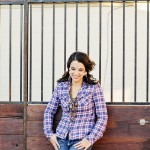Authors and editors are different job titles, but they share the same role: to make something poignant, dramatic, and beautiful out of words.
The two go hand-in-hand. One cannot function without the other. Where would authors be without editors? And where would editors be without authors? The two are so closely related that many an editor has put his hand to pen (or keyboard, as it would be) and pumped out prose or poetry. And more than one author has hung out a shingle and declared herself an editor.
I would say that the very best editors are both, and here’s why.
As an editor who is also an author, I have a keen understanding of the heart and soul the writer has poured into the book. I fully empathize with the pain it instills to delete paragraphs, move scenes, and kill characters. I recognize the power of the author’s voice and the desire to KEEP that voice. Above all, I want the author to claim the finished product as their own and be proud of it, believing that I as the editor only helped enhance what they created. I never want to force them to do something to their project that they don’t also see as a good step for their book.
So, in my mind, it’s obviously an advantage to have an editor who’s also an author. Is it also an advantage to be an author who’s an editor? That’s a bit trickier. While I can proofread my own things, I am just as guilty as the next at missing my own mistakes. Even as an editor, I need other editors.
But does being a published author automatically qualify me to be an editor?
I absolutely do not think so. Editing is like a hidden language, a pattern of symbols that must be visually diagnosed. I was in my third year of college as an English major before I took my first editing class. I considered myself very good at grammar (I had all As in my English classes) and often helped proof my friends’ papers. Due to illness, I missed our first editing exam. I remember sitting in my professor’s office, taking the make-up test. I read through the five paragraphs, marked the errors, read through them again, and handed the exam back. I’d found a total of four mistakes. I knew there had to be more than that, but I didn’t see them.
My wonderful professor looked at my test and said, “Now, see, you’re not looking at it right.” He then proceeded to OPEN MY EYES to the editorial world. I do not know how he did it. But he pointed out in the first sentence how I’d missed so many errors, words that should be capitalized, extra periods, missing commas. And then he handed my test back to me and told me to try again.
Bless that dear man. When I looked again, it was literally like invisible ink glowed on the mistakes. I could see them. I spoke the code.
I scored a 97% on that test. (By the way, there were more than four errors in just that first sentence.) I discovered a love for editing. My first real job was as an editor for the Brigham Young University Television magazine. Editing came more naturally to me than writing, which was a hobby I forgot I enjoyed until after my first child came along.
It does take some of the pleasure out of reading, I’ll admit. No matter how much I love the story, I notice every missing comma and every misspelled word. I can handle a few, but if the book is riddled with them, it’s like someone took a red marker and wrote all over the page. I can’t do it.
But if your editor is also an author, it should work in your favor. He will GET where you’re coming from. However, do be sure to ask for credentials. Just because someone can write a book doesn’t mean they can tell you where commas and hyphens are supposed to go.
 Tamara Hart Heiner lives in Arkansas with her husband, four kids, a cat, a guinea pig, and parakeet. She would love to add a macaw and a sugar glider to the family collection. She’s the author of the young adult suspense series, PERILOUS, as well as Inevitable and the nonfiction book about the Joplin tornado, Tornado Warning. She’s also a freelance editor. In her free time…never mind, she doesn’t have any free time. If she did, she’d write more books.
Tamara Hart Heiner lives in Arkansas with her husband, four kids, a cat, a guinea pig, and parakeet. She would love to add a macaw and a sugar glider to the family collection. She’s the author of the young adult suspense series, PERILOUS, as well as Inevitable and the nonfiction book about the Joplin tornado, Tornado Warning. She’s also a freelance editor. In her free time…never mind, she doesn’t have any free time. If she did, she’d write more books.
